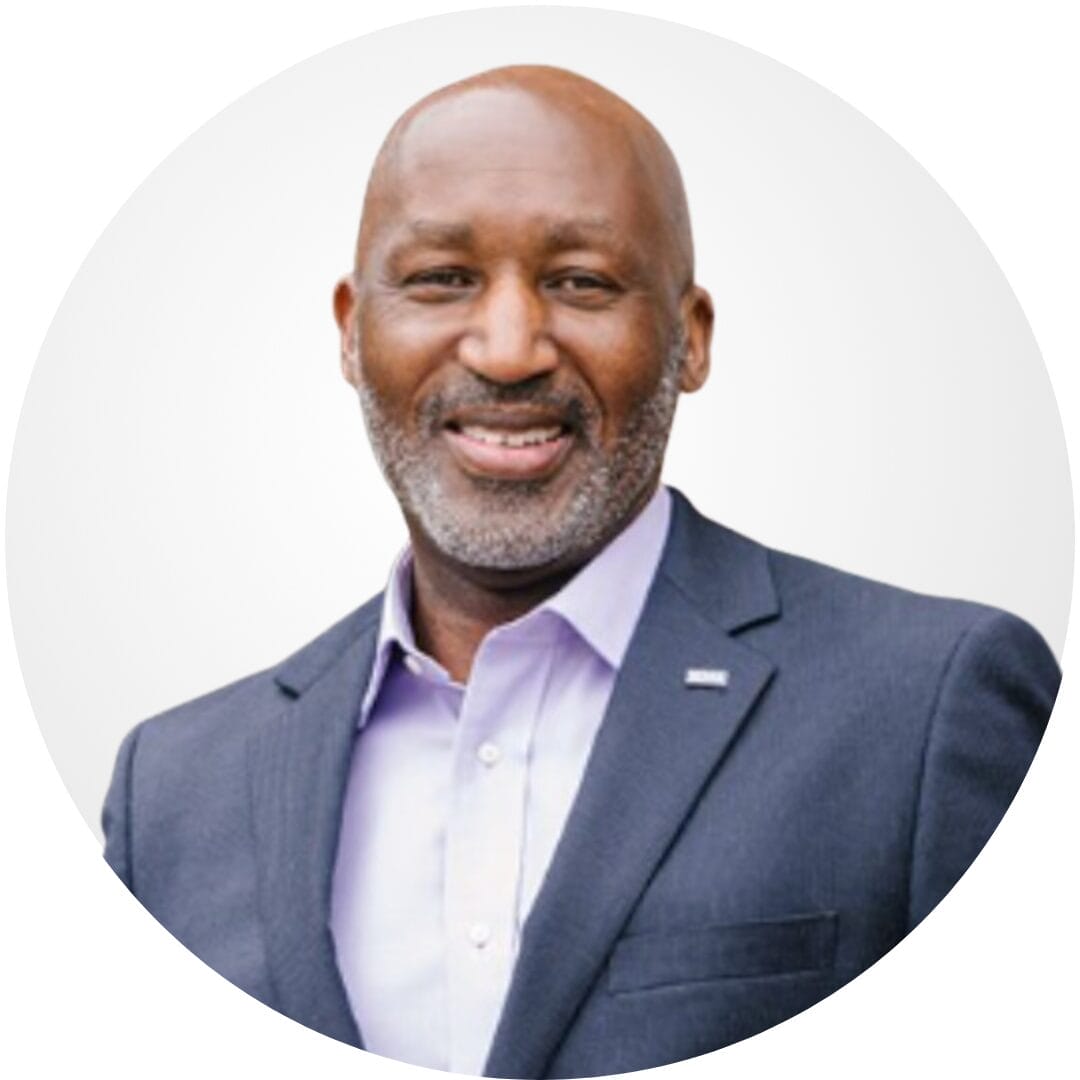As technology advances, healthcare organizations face the ongoing challenge to innovate and operate efficiently. Rapid growth in the healthcare sector increasingly demands the latest technological support, especially as the industry shifts towards a patient-centric approach.
Blockchain in healthcare holds transformative potential by enhancing data security, privacy, and accessibility for patients. This technology offers patients greater control and protection over their personal health data. But how exactly does blockchain achieve this? And how are healthcare providers adopting it to improve patient outcomes?
Blockchain in healthcare functions as a distributed database that securely stores data records in connected “blocks” of information, reflecting how data is shared, accessed, or modified across its peer-to-peer network. Each transaction performed within a healthcare Blockchain system creates a new block, which is replicated across all connected devices, establishing an up-to-date, shared record of every transaction. This decentralized structure allows easy tracking of data changes and ensures consistency and accuracy in healthcare records, enhancing trust and transparency in data management.
Blockchain in healthcare offers promising advancements for data security, privacy, and integration. By implementing blockchain, healthcare providers can unify fragmented systems, enabling a more cohesive view of patient health and supporting better-informed decisions about care value. Over time, a blockchain network for electronic medical records could streamline processes, increase efficiency, and contribute to improved patient outcomes, paving the way for a more connected and secure healthcare ecosystem.
No time to read the full blog? Watch this detailed session on blockchain in healthcare 👇
Before integrating blockchain in healthcare, it’s essential to understand the scope and generation of healthcare data.
Medical treatments generate sensitive patient data at every step, from consultations to diagnoses and surgeries. Knowing the origins of this data is crucial for secure storage and management, enabling blockchain systems to support efficient and trustworthy data handling across the healthcare ecosystem.
The healthcare data includes:
However, these data come in different formats, such as text, paper, videos, pictures, digital or multimedia files.
Even though healthcare providers are increasingly adopting digital technologies, patients’ medical records are still stored on centralized servers. This creates a potential attack surface for hackers.
Electronic healthcare records (EHRs) hold sensitive information like; name, address, place of work, prescribed medicines, payment modes, etc.
Blockchain in healthcare offers a solution to improve data quality by securely adding value to sensitive patient information. Accurate, secure, and accessible patient health records are essential for effective treatment, yet unstructured data can cause inconsistencies and delays. Blockchain technology provides a transparent way to track data origins across stages—whether from consultation, diagnosis, or surgery—ensuring data integrity and more efficient management of medical records.
However, following the three steps to secure data before storing it in the Blockchain is important.
🔹 Make data ready for compliance
Saving data on a Blockchain doesn’t necessarily mean that you will be out of compliance. Blockchain can make compliance enforcement more seamless and transparent. The HIPAA compliance regulations exist to protect patient data. Any healthcare vendors dealing with patients’ protected health information must follow HIPAA’s security measures.
🔹 Include meta information and structure it for computation
Medical data should be stored in a structured way so that it can be accessed efficiently by all healthcare providers. Storing health data on the Blockchain has numerous benefits. It ensures that the data is tamper-proof and secure. It makes the data more accessible to authorized parties.
🔹 Restore the patient’s identity using the Public Hash key
A person’s identity can be restored by a hash, which is a unique numerical value. This hash would make it impossible for an attacker to decode the user’s identity and protected health information. De-identify data will remove all details about the patient, including their name, address, social security number, and financial information.
Blockchain technology in healthcare can help eliminate the risks associated with data centralized by storing digital health records across multiple nodes in the network.
To elaborate on how a Blockchain healthcare solution would manage medical records, we have divided this module into four steps;
A Blockchain can either be a public or private Blockchain. Since a user’s identity will not be visible, a public Blockchain can be used in this case.
Once the data is stored, it can be accessed by various Blockchain healthcare providers using smart contracts. This way, the data is secure, and only those authorized to view it can do so.
Related Read: Promising Power of Blockchain, ML, and AI in mHealth Apps
Smart contracts are being used more frequently to help with data sharing and enforcement of business rules, compliance requirements, and the user’s will.
The stakeholders involved in the patient’s treatment can consume the stored data with the patient’s consent, which keeps everyone on the same page while protecting sensitive information.
How could different healthcare providers use smart contracts to consume data?🤔
When data is saved on the Blockchain, smart contracts are triggered. This allows the healthcare providers to receive the patient’s report without revealing their identity. The healthcare provider requests access to their health records.
The patients will have ownership of the data. They will decide what information to share with which entity using smart contracts.
Smart contracts will ensure a transparent, conflict-free exchange of information. No one can access the patient’s health records if the user refuses to exchange the data.
Today, healthcare data is generated by various technologies, including AI, IoT, and ML. This data is used for a range of purposes, such as disease prevention, treatment, drug development, and clinical trials.
Blockchain technology in healthcare can enable de-identification processes that protect patient identities, allowing medical research companies to safely use anonymized records in their studies. Through blockchain, AI and data mining can also help research teams extract valuable insights from large datasets.
Blockchain healthcare solutions offer significant benefits. From consultations to surgeries, patient care generates sensitive data that requires secure management and traceability, and blockchain offers a reliable way to store and manage this data.
Before investing in Blockchain, be sure to weigh the rewards of introducing the technology into a healthcare system. Let’s explore the potential benefits;
✔️ Simplifies Approach to Data
Unlike how information is typically managed, healthcare records can be shared across multiple computer systems using healthcare Blockchain technology.
This could potentially remove the need for storing data in various databases, making it much simpler to access the information.
✔️ System Interoperability
Blockchain technology in healthcare offers a decentralized solution to data interoperability challenges, enabling better coordination of care, real-time data sharing, and ensuring the integrity and security of patient information.
This Video Might Help 👇
✔️ Efficiency
Blockchain technology has the potential to make healthcare systems much more efficient by allowing for real-time processing. This could remove the need for third-party companies and, as a result, eliminate delays in accessing data.
✔️ Control Over Data
The patient’s public key would be required to access their health records. This would allow patients to control who should have access to the data seamlessly. Since the data is encrypted, it would remain unreadable to hackers even if they could access it.
Related Read: Benefits of Data Visualization in Healthcare
Many healthcare institutions are developing blockchain-enabled systems and applications to improve services for patients and healthcare professionals.
Blockchain technology in healthcare is transforming the sector by decentralizing patient medical histories, streamlining payment systems, and enabling better tracking of pharmaceutical data.
Health-to-earn is a concept where an individual can earn from providing his health data or performing ‘health tasks’ such as going for a walk or a jog. The application rewards directly to the user’s dHealth wallet for activities completed.
Many healthcare providers have noticed the problem of getting feedback from patients with rare diseases on how well the care or medication works for them.
dHealth works with a hospital or healthcare provider and has them enroll their patients in the application. The patients are asked to install the Centiva App. The patients must provide basic information such as age, address, etc. This information stays within the app and is not sent to any server.
Then a researcher would broadcast a request to these users to share the patient’s data. Each request is accompanied by the identity of the lab or pharmaceutical company. It displays what they are requesting and is willing to compensate the individual for taking the time to answer the questions or share the data.
For example, a healthcare practitioner is trying to develop a new diabetes treatment. He/ She would create a request for all the patients living in Canada, grouping the age group between 50 to 70 with type 2 diabetes. The request will then be broadcasted on the Blockchain. Therefore, the user’s app will then get notified about the transaction.
The app will monitor the Blockchain and match the criteria with a relevant user profile that’s stored locally. If there’s a match, the patient will get a notification. After the patients give his/her consent, they are directed to the place where they can share the data. Finally, the researcher receives the data and sends the reward token to the patient.
Blockchain technology in healthcare offers unparalleled supply chain transparency by providing a decentralized ledger that records every transaction. This traceability enables stakeholders to monitor the journey of medical supplies, ensuring authenticity and safety. By tracking products from manufacturer to end-user, healthcare organizations can reduce fraud, enhance accountability, and ensure compliance with industry regulations.
Using blockchain in healthcare allows for the creation of patient-centric electronic health records (EHRs) that patients control. This technology ensures that patients can securely share their health data with providers while maintaining ownership. Immutable records enhance data integrity, streamline information exchange, and improve care coordination, ultimately leading to better patient outcomes and increased trust in healthcare systems.
Blockchain technology enables the use of smart contracts in healthcare for automated insurance claims and supply chain settlements. These self-executing contracts reduce administrative overhead and minimize errors by automatically enforcing terms based on predefined conditions. This efficiency speeds up the claims process and ensures timely payments, benefiting both healthcare providers and patients while lowering operational costs.
Implementing blockchain in healthcare streamlines medical staff credential verification processes. This technology provides a secure and immutable record of qualifications, certifications, and employment history. By eliminating the need for time-consuming background checks, healthcare organizations can quickly verify credentials, ensuring that only qualified professionals deliver care. This enhances patient safety and compliance with regulatory standards.
Blockchain technology bolsters the security of IoT in healthcare, protecting devices used for remote patient monitoring. By providing a decentralized and encrypted framework, blockchain safeguards sensitive data transmitted between devices and healthcare systems. This security measure helps prevent unauthorized access, ensuring patient privacy and data integrity while allowing healthcare providers to rely on accurate real-time information for decision-making.

We hope this blog has provided you with a better understanding of how Blockchain technology can be used in healthcare to create irresistible solutions. With AI-enabled automated health checks, patients can save money and time, while their immutable health records will be securely stored on the Blockchain.
We have a detailed session by Vega Paithankar explaining the application of Blockchain in healthcare and some of their great examples.
Blockchain in healthcare refers to the use of blockchain technology to securely manage and share medical data. It creates a decentralized and tamper-proof system for storing patient information, ensuring data integrity and privacy while facilitating interoperability among different healthcare providers.
Blockchain acts as a secure, shared ledger in healthcare, allowing for the safe and transparent exchange of patient data between providers, researchers, and even patients themselves. This can streamline record-keeping, improve data privacy, enhance the pharmaceutical supply chain, and even aid in medical research efforts.
The future of blockchain in healthcare is bright, potentially revolutionizing data management. It could enable seamless medical record sharing between providers, empowering patients with control over their data, streamlining supply chains, accelerating research through secure data access, and even personalizing medicine through improved data analysis.
Blockchain technology in healthcare improves patient care by providing secure access to accurate and up-to-date medical records. This ensures that healthcare providers have the necessary information to make informed decisions, leading to better treatment outcomes and increased patient safety.
The benefits of blockchain in healthcare include enhanced data security, improved transparency in medical transactions, streamlined billing processes, and efficient tracking of pharmaceuticals. This technology helps to reduce fraud, increase accountability, and enhance collaboration between healthcare stakeholders.
Blockchain addresses data security concerns in healthcare by encrypting patient data and storing it across a distributed network. This decentralized approach prevents unauthorized access and reduces the risk of data breaches, ensuring that patient information remains confidential and secure.

We worked with Mindbowser on a design sprint, and their team did an awesome job. They really helped us shape the look and feel of our web app and gave us a clean, thoughtful design that our build team could...


The team at Mindbowser was highly professional, patient, and collaborative throughout our engagement. They struck the right balance between offering guidance and taking direction, which made the development process smooth. Although our project wasn’t related to healthcare, we clearly benefited...

Founder, Texas Ranch Security

Mindbowser played a crucial role in helping us bring everything together into a unified, cohesive product. Their commitment to industry-standard coding practices made an enormous difference, allowing developers to seamlessly transition in and out of the project without any confusion....

CEO, MarketsAI

I'm thrilled to be partnering with Mindbowser on our journey with TravelRite. The collaboration has been exceptional, and I’m truly grateful for the dedication and expertise the team has brought to the development process. Their commitment to our mission is...

Founder & CEO, TravelRite

The Mindbowser team's professionalism consistently impressed me. Their commitment to quality shone through in every aspect of the project. They truly went the extra mile, ensuring they understood our needs perfectly and were always willing to invest the time to...

CTO, New Day Therapeutics

I collaborated with Mindbowser for several years on a complex SaaS platform project. They took over a partially completed project and successfully transformed it into a fully functional and robust platform. Throughout the entire process, the quality of their work...

President, E.B. Carlson

Mindbowser and team are professional, talented and very responsive. They got us through a challenging situation with our IOT product successfully. They will be our go to dev team going forward.

Founder, Cascada

Amazing team to work with. Very responsive and very skilled in both front and backend engineering. Looking forward to our next project together.

Co-Founder, Emerge

The team is great to work with. Very professional, on task, and efficient.

Founder, PeriopMD

I can not express enough how pleased we are with the whole team. From the first call and meeting, they took our vision and ran with it. Communication was easy and everyone was flexible to our schedule. I’m excited to...

Founder, Seeke

We had very close go live timeline and Mindbowser team got us live a month before.

CEO, BuyNow WorldWide

If you want a team of great developers, I recommend them for the next project.

Founder, Teach Reach

Mindbowser built both iOS and Android apps for Mindworks, that have stood the test of time. 5 years later they still function quite beautifully. Their team always met their objectives and I'm very happy with the end result. Thank you!

Founder, Mindworks

Mindbowser has delivered a much better quality product than our previous tech vendors. Our product is stable and passed Well Architected Framework Review from AWS.

CEO, PurpleAnt

I am happy to share that we got USD 10k in cloud credits courtesy of our friends at Mindbowser. Thank you Pravin and Ayush, this means a lot to us.

CTO, Shortlist

Mindbowser is one of the reasons that our app is successful. These guys have been a great team.

Founder & CEO, MangoMirror

Kudos for all your hard work and diligence on the Telehealth platform project. You made it possible.

CEO, ThriveHealth

Mindbowser helped us build an awesome iOS app to bring balance to people’s lives.

CEO, SMILINGMIND

They were a very responsive team! Extremely easy to communicate and work with!

Founder & CEO, TotTech

We’ve had very little-to-no hiccups at all—it’s been a really pleasurable experience.

Co-Founder, TEAM8s

Mindbowser was very helpful with explaining the development process and started quickly on the project.

Executive Director of Product Development, Innovation Lab

The greatest benefit we got from Mindbowser is the expertise. Their team has developed apps in all different industries with all types of social proofs.

Co-Founder, Vesica

Mindbowser is professional, efficient and thorough.

Consultant, XPRIZE

Very committed, they create beautiful apps and are very benevolent. They have brilliant Ideas.

Founder, S.T.A.R.S of Wellness

Mindbowser was great; they listened to us a lot and helped us hone in on the actual idea of the app. They had put together fantastic wireframes for us.

Co-Founder, Flat Earth

Ayush was responsive and paired me with the best team member possible, to complete my complex vision and project. Could not be happier.

Founder, Child Life On Call

The team from Mindbowser stayed on task, asked the right questions, and completed the required tasks in a timely fashion! Strong work team!

CEO, SDOH2Health LLC

Mindbowser was easy to work with and hit the ground running, immediately feeling like part of our team.

CEO, Stealth Startup

Mindbowser was an excellent partner in developing my fitness app. They were patient, attentive, & understood my business needs. The end product exceeded my expectations. Thrilled to share it globally.

Owner, Phalanx

Mindbowser's expertise in tech, process & mobile development made them our choice for our app. The team was dedicated to the process & delivered high-quality features on time. They also gave valuable industry advice. Highly recommend them for app development...

Co-Founder, Fox&Fork
